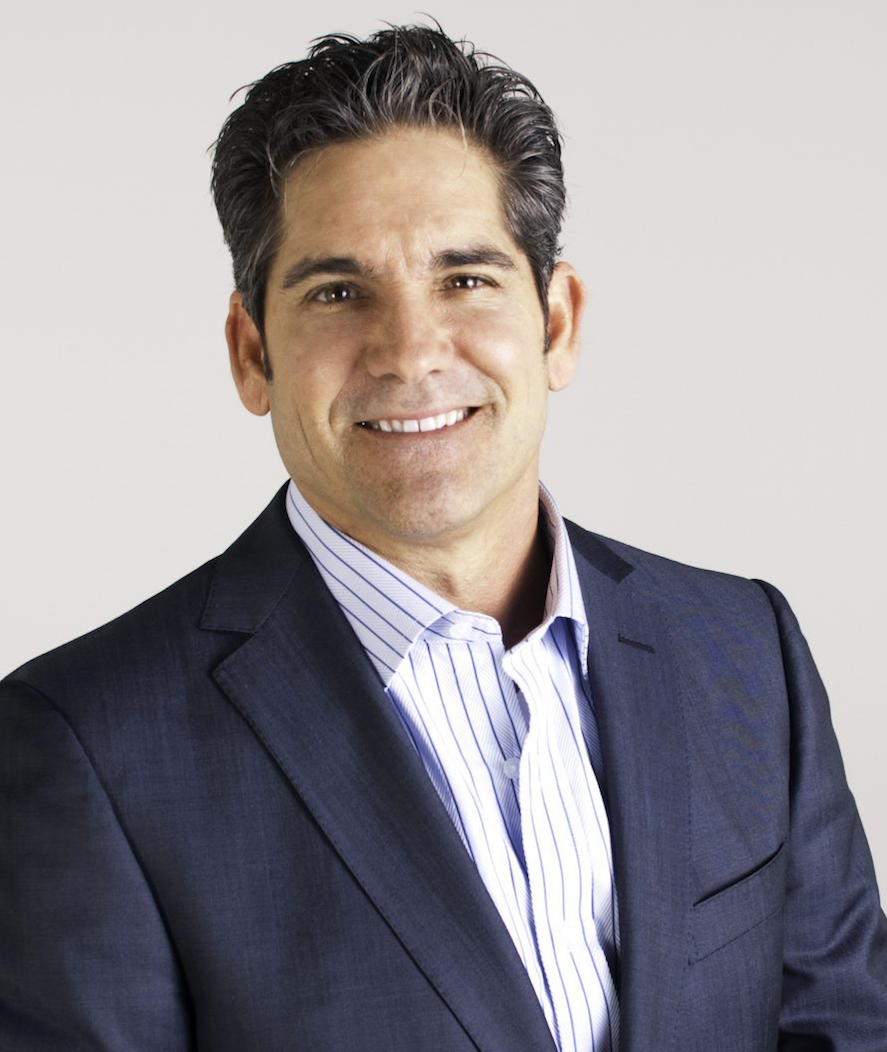

Grinding or Thriving: Can Entrepreneurs Succeed in a 40-Hour Work Week?
Summary
Does more work equal more success? In this opinion piece, Melissa delves into entrepreneurship, working hours, and the correlation between those hours and success. She details Grant Cardone’s preference for the 95-hour work week against the thoughts of this year’s podcast guests.
Reflection Questions
- How many hours do you think a successful business owner should be working each week? If it’s more than 40 hours, why? If you think it can be done in less, why?
- Do you agree that Millennials are the “Burnout Generation,” or would you say other generations have had it just as tough or tougher?
- If you’re a business owner, how do you balance your personal and professional lives?
Journal Prompt
Consider your perfect week. How many hours are given to work, to play, to time with family, time with friends, and to hobbies? Describe this perfect week. How does it make you feel? Are there steps you need to take to have the perfect week a part of your routine right now?
Since the beginning of this year, Laura and I have interviewed over a dozen talented women. Many of these women are entrepreneurs, running their own firms and businesses with astonishing results. Some of these women, like Allie Danziger, are serial entrepreneurs. These forces of nature build businesses and then sell them at great profits to then start all over again with a new company. Their stories are empowering and inspiring. But they leave me thinking about what it takes to be a successful entrepreneur. Is the hustle of a 60+ hour work week necessary to be a successful business owner?
Listen to the Allie Danziger episode of the DesignDash podcast >>
Grant Cardone, a famous real estate mogul and self-made millionnaire, popularized the idea that hustling = success. In a Medium post entitled, “Are you 9 to 5 or 95?”, he proudly recommends, “If you ever want to be a millionaire, you need to stop doing the 9 to 5 and start doing 95.” And what he means by that, is that in order to be successful, you should work 95 hours a week. Yes, 95 hours a week. For some perspective, there are just 168 hours in a week. Clocking 95 hours would mean you’re spending 56% of your week working.
Not knocking Grant’s lifestyle. I’m sure his advice is quite motivating, especially considering he was once in the crippling throes of drug addiction before making it big. That could actually explain why the guy never stops…
Now, he wrote that post over 7 years ago. I’m not sure he still feels the same way. Yet, he’s only the most extreme example in a long list of successful entrepreneurs that support long hours. Wine critic turned media guru, Gary Vaynerchuk works 18 hours daily. His motto? “More hours. Faster. Better. Stronger.” Microsoft founder, Bill Gates, once said he felt, “sleeping a lot was lazy,” and he’s been reported to have worked 16 hour days while building his empire.
There is no denying these men are extremely successful. So, it would seem reasonable that following this advice could be a way to achieve similar gains. But if you aren’t willing to trade half of your life for your business, does that mean you can’t be a successful entrepreneur?


I’m going to say right now that I do not have the answer to this question. Not definitively, anyway. While I’m impressed by the motivation of the business owners I’ve interviewed, I can’t say that any of them have achieved a work/life balance that satisfies them. Erin Cummings, who we interviewed in June, said soundly that any kind of work life balance was “bullshit.”
As a yoga studio owner, Erin admitted that she wasn’t always so good with balancing household responsibilities with the needs of her business. Her advice was to seek out as much help as you can and outsource, outsource, outsource.
It’s at this point it could be interesting to make the distinction between the way men view work success and how women view work success. I don’t have enough data to make any sort of research-based conclusion here. But if I’m allowed to go by a feeling, I am sure working women, especially working mothers, like the ones we’ve interviewed, would say that a 95-hour work week is not only impossible, but insane.
We’re picking a little too much on Grant here, so I should introduce his lovely wife, Elena, who also supports a culture that values the hustle and grind. Elena, like her husband, is an entrepreneur and the founder of 10x Ladies, a leadership conference for women seeking to improve their lives both personally and professionally. Sound familiar?
What I find really interesting about Elena’s approach in contrast to Grant’s is that she focuses on network-building and delegation. Elena says, “Just because you want to have it all as a working mom, doesn’t mean you have to do it all.” And she promotes a community-building approach that allows you to prioritize your time and get as much help along the way.
I’m not sure if Grant is eschewing assistance, but if he is indeed working 95 hours per week, then the guy could use some help!


All of these ideas have crystallized for me in the recent months because well, it’s that time in my life when I have to look back at the first half and wonder where my accomplishments have taken me.
I started looking into this because it seemed, at least from my small sample size of interviewees, that in order to be a successful entrepreneur, you have to be completely tied to your business in every way. One of our earliest podcast guests, Jacky Fischer, told us that “It’s not workaholism if you like what you do.”
I don’t mind pulling a 60-hour week every once in a while, but I can’t sustain that level of dedication (insanity?) over the course of many months or years. I also live with a psychologist who is not afraid to tell me that when I’m working too much, I’m avoiding my other responsibilities as wife, mother, and other half of our household. He’s always warning me about getting too burnt out.
Laura and I interviewed burnout specialist, Avery Thatcher in a recent podcast. As a victim of burnout herself, Avery left her role as an ICU nurse to address many illnesses at their cause: stress. According to Avery, we’re taught to manage the symptoms of burnout with meditation, yoga, somatic experiences, and journaling. These are great tools, but learning to stop the stress itself is what is really required in order to get out of survival mode.
Some people can rock these 12+ hour days and build multi-million dollar businesses. That’s a fact. But what I don’t know is how these guys address their burn out. I’m sure exercise is a huge factor. We’ve seen how jacked Jeff Bezos got, and while a lot of people would see that as a “you’re not ugly, you’re just poor” kind of situation, I would say he probably took up serious lifting to combat the stress of running Amazon.
Maybe Jeff and Grant and Gary and Bill can do it all because they don’t fall into what author Anne Helen Peterson calls the “Burnout Generation.”
In her 2019 Buzzfeed article and subsequent book, Peterson deemed Millennials the “Burnout Generation.” While all generations have had their own challenges, Millennials have experienced much slower economic growth than any other generation in the past 150 years. Many of us graduated college saddled with debt, only to enter the workforce at the height of recession. It can be difficult to reconcile working more with making less, but sadly that is the reality for many.


As Peterson told Vox, “I think it’s fine to believe that work is good and that idle hands make mischief, or whatever. It’s also fine to believe that work ought to be fulfilling. But the ethos we’re operating in says that work is good when you’re most like a robot and you make money.”
At one time, making 6 figures was a guarantee that you were a successful person. When I reached this milestone, I felt so proud and eager to obtain all the goodies I thought came with this salary achievement. And don’t get me wrong, I’m doing just fine. But for me, and maybe for my generation, working harder and longer has not equated to swimming in cash like Scrooge McDuck. At least, not without the ever-present burnout. So, it’s difficult for me to recommend working these kinds of hours when success isn’t a guaranteed outcome.
Looking at it generationally, Millennials are more and more disillusioned with the idea that working more equates to more success. But it could also be that as we reach the mid-life crisis stage, we are reevaluating our current positions and discovering we aren’t that happy with where we are. According to a 2021 Harris Poll, nearly half of the Millennials they surveyed wish they’d chosen a different career path.
When we interviewed my good friend, Jennifer Phillips, on the DesignDash Podcast, she had just embarked on a self-imposed sabbatical from work. After a tumultuous time in Canada during the pandemic, Jennifer had issues with her work visa, resulting in a year of self-reflection.
“I had to essentially break my identity, my self worth, with work,” Jennifer says. “When you’re forced into a situation where you can’t work, you really have to evaluate what does the rest of my life look like? What do I need?”
And that takes us full circle to entrepreneurship. Because if you’re unhappy with your current job situation, wouldn’t the alternative, working for yourself, be the preferred option? Jennifer is now a career coach, helping others find an identity untethered to their jobs, while also building satisfying careers.


I don’t think it’s that Millennials are afraid to work, which goes against our decades-long epithet as lazy narcissists. I think we just want to make sure that work actually gets us somewhere.
Recent research suggests that nearly 50% of us are involved in a money-making side-hustle. Millennial Bernadette Joy left her bridesmaid rental business due to the massive time commitments and opted for a 20-hour work week. At this year’s SXSW, Joy actually did admit to being “lazy” adding, “I don’t want to work all the time.” Instead, she hyper-focuses within the 20 hours she does spend on her business.
While Bernadette is just one anecdote, it seems possible that success CAN be found within a typical 40-hour work week. With advances in technology and the emerging uses of AI for entrepreneurs, working smarter and not harder should be the norm. We can redefine success beyond the hours and begin to create networks, communities, and systems that provide for real work/life balance.
I think most of us can agree that a 95-hour work week isn’t attainable, or desirable. The goal here is to find purposeful work that revs up your passion, while allowing you the self-care needed to avoid burnout. That could be your own business, a side hustle, or the job you’re in right now.
Next week, we’re going to explore what it means to work in a purposeful environment. And if you are an entrepreneur, how to create that purpose for you and your team within a work week that won’t burn you out.
I’m still looking for the entrepreneurs who work no more than 40 hours weekly, have reached their income goals, and have a thriving personal life. If this is you, leave a comment below. Or email me directly at melissa@designdash.com because I really want to know how you do it!








